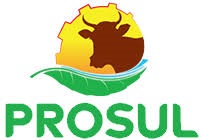“The impact of land rights regularization on the cassava technology adoption among smallholder farmers in Mozambique: The Case of Pro-Poor Value Chain Development Project in the Maputo and Limpopo corridors (PROSUL)”
Authors: Daniel Mate , Constantino Cuambe , Daniel Simango , Stella Pinto Novo Zeca , Francesco Rubino
Abstract:
The Pro-Poor Value Chain Development Project in the Maputo and Limpopo Corridors (PROSUL) is an IFAD -supported project of the Government of Mozambique currently being implemented in Mozambique, with the goal of contributing to the improvement of livelihoods and climate resilience of smallholder farmers in selected districts of the Maputo and Limpopo corridors.
The PROSUL project had the opportunity to present papers in the World Bank “Land & Poverty Conference namely: (i) “Land tenure and adoption of cassava technology
An empirical study to assess the impact of land regularization on technology adoption was conducted from January to October 2018, covering a sample of 239 smallholder farmers and 249 participants in focus groups in seven (7) districts. Out of the 239 smallholders, 40 smallholder farmers from a district with limited project assistance were used as control.
The study reveals that majority of smallholder farmers have adopted the technologies promoted by the project, with an average the adoption rate of 76%. Further analysis shows that majority of land certificates (DUAT’s) were issued in the name of women (47%), followed by men (28.6%). Certificates with co-titling including sons and daughters accounted for 18% of the total figure. Spousal co-titling accounted for 4.4% and co-titling with other relatives was only 1.9%.
The study reveals that majority of the famers (81.9%) have received information and/or training related to land legislation. The study has proved that the regularization of land rights contributed to the improve land use for 80% of the households included in the sample; Lastly, the regularization of land rights contributed positively to intensification of cassava production for 85.4% of the households.




